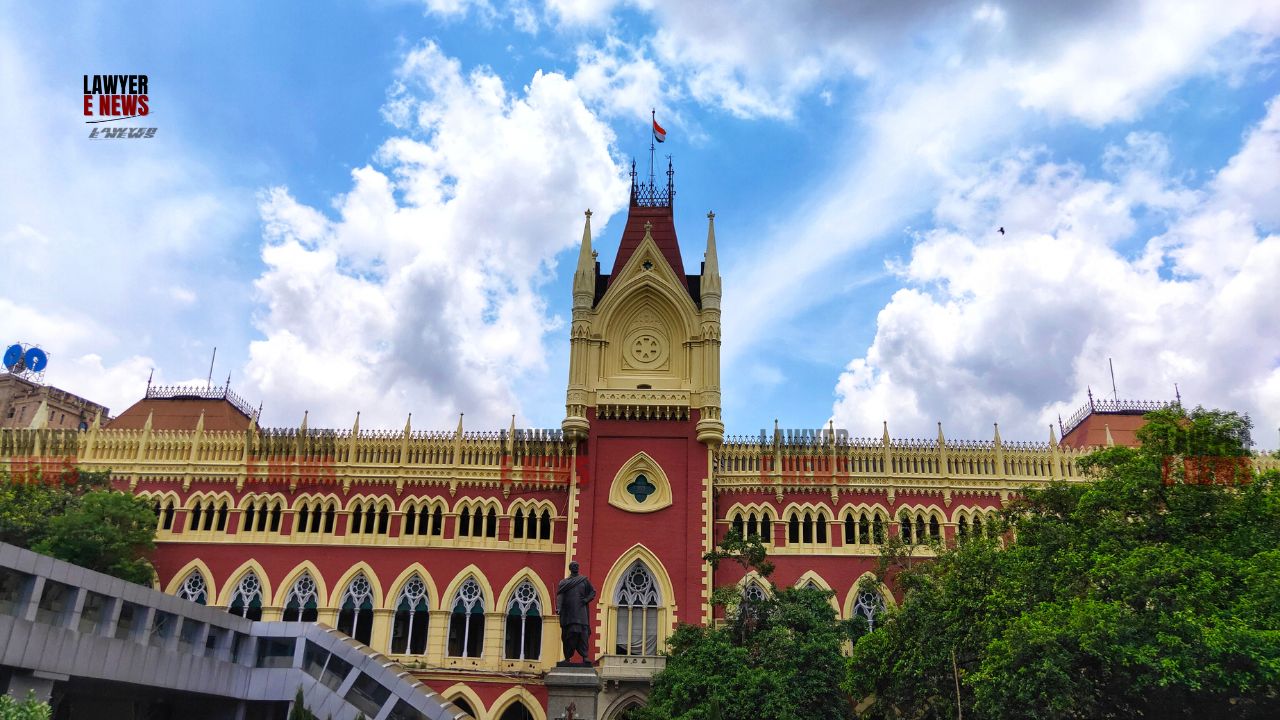-
by Admin
15 February 2026 5:35 AM



Fundamental rights under Article 19 cannot be abridged or prohibited unless reasonable restrictions are imposed under law," observes Justice Tirthankar Ghosh. Calcutta High Court addressing the interplay between the fundamental right to peaceful assembly and the imposition of restrictions by authorities. The petitioners, a Nari-Trans-Queer organization, sought permission for a protest rally to raise public awareness and demand justice following an incident at R.G. Kar Medical College. The authorities, citing public inconvenience and procedural irregularities, denied the request, stating the rally "cannot be processed."
The High Court, balancing the petitioners' right to protest under Article 19 of the Constitution against public convenience, allowed the rally along a modified route, subject to certain conditions. The Court held that the prohibition order issued by the authorities violated the petitioners’ fundamental rights and emphasized the distinction between reasonable restrictions and outright prohibitions.
Fundamental Rights vs. Restrictions
The primary contention revolved around whether the authorities' denial of permission for the rally was justified under Article 19(1)(b) of the Constitution, which guarantees the right to assemble peacefully. The petitioners argued that their right to protest could not be curtailed arbitrarily. They proposed measures to minimize public inconvenience, including limiting participants to 100 individuals and altering the rally route.
The Court observed, “No person can be divested of his fundamental rights. They are incapable of being taken away or abridged. All that the State can do, by exercise of its legislative power, is to regulate these rights by imposition of reasonable restrictions.” Relying on the Supreme Court's judgment in Ramlila Maidan Incident, In Re [(2012) 5 SCC 1], the Court emphasized that restrictions must be reasonable and proportionate to the objectives sought to be achieved under Article 19(2).
The order denying permission, which merely stated that the rally "cannot be processed," was deemed prohibitory in nature. The Court held, “The distinction between restriction and prohibition must be borne in mind. A prohibition must satisfy stricter scrutiny than a mere restriction and can only be imposed where no lesser alternative exists.”
Balancing Public Convenience and Protest Rights
The Court carefully weighed the petitioners' right to protest against the public's right to free movement and convenience. It noted that the initial route proposed by the petitioners—from Wellington Square to Rani Rashmoni Avenue—could cause significant disruption. However, the petitioners’ willingness to modify the route to culminate at College Square demonstrated their intent to balance their rights with societal interests.
The Court approved the modified route, reasoning that it “reduces inconvenience to the public while preserving the essence of the petitioners’ right to peaceful assembly.” It also directed the petitioners to limit the rally to 100 participants, ensure adherence to noise pollution rules, and conclude the event by 4:30 p.m. These measures were deemed sufficient to address public inconvenience.
The Court underscored the responsibilities of the petitioners as organizers, emphasizing that the protest must remain peaceful and within the bounds of law. It stated, “The petitioners shall abide by all conditions for holding such a peaceful procession and ensure that it does not cause undue obstruction to the public at large.”
To ensure public order, the police were directed to provide adequate security under the supervision of the concerned police station. The Court also mandated that a delegation of the petitioners meet the Law Secretary, Government of West Bengal, to present their demand charter following the rally.
A significant aspect of the judgment was the Court's criticism of the authorities’ outright prohibition of the rally. Citing Ramlila Maidan Incident, In Re, the Court reiterated, “Prohibitory orders must satisfy stricter scrutiny than reasonable restrictions.” It held that the authorities’ response, which claimed the rally “cannot be processed,” amounted to a blanket prohibition rather than a reasonable restriction.
The Court stated, “When imposing a prohibition, the State must demonstrate that any lesser alternative would be inadequate.” It found that the authorities failed to justify their decision, particularly when the petitioners expressed their willingness to adopt measures to mitigate inconvenience.
The High Court set aside the authorities’ prohibitory order dated January 12, 2025, and permitted the petitioners to hold the rally on January 16, 2025, along the modified route. The Court balanced the petitioners’ right to protest with the public's right to convenience, emphasizing that constitutional rights cannot be curtailed arbitrarily.
The following conditions were imposed on the rally:
The rally was limited to 100 participants.
The modified route, from Wellington Square to College Square, was to be followed.
The rally was to conclude by 4:30 p.m.
The petitioners were required to observe noise pollution rules and ensure the protest remained peaceful.
A delegation of the petitioners was directed to meet the Law Secretary to present their demands.
The judgment reiterates the judiciary's role in safeguarding fundamental rights while ensuring societal harmony. It reaffirms the principle that restrictions on fundamental rights must be reasonable, proportionate, and subject to judicial review.
Date of Decision: January 15, 2025
